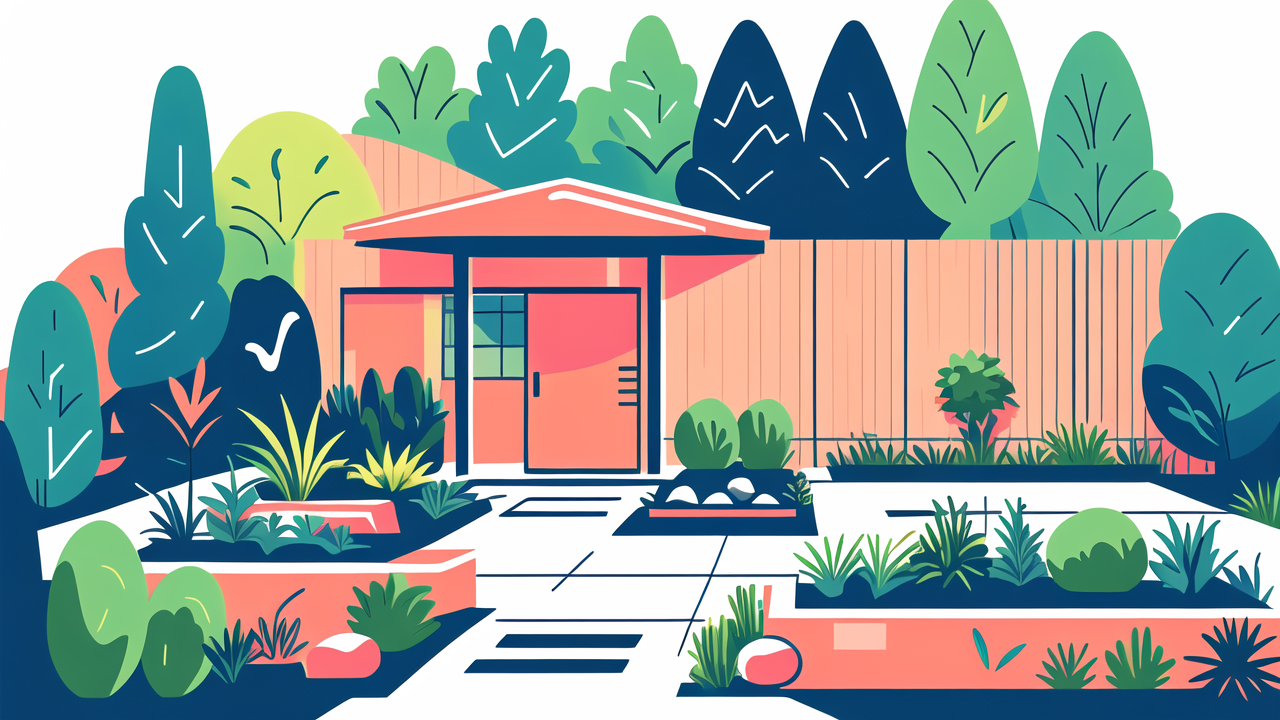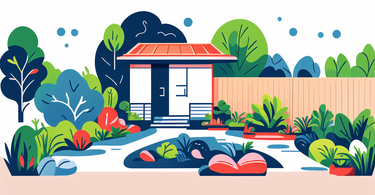Understanding the Role of Garden Fences in Landscaping
The Aesthetic Benefits of Garden Fences
Garden fences do more than just mark boundaries. They add charm and style to your outdoor space. A well-chosen fence can be a focal point, enhancing your garden's beauty. It can complement your home's architecture and landscape design.

Fences come in various styles, from rustic to modern. They can be painted or stained to match your color scheme. Some fences feature decorative elements like lattice tops or carved posts. These details add visual interest to your garden.
A fence can also create a backdrop for your plants. It can showcase climbing vines or act as a canvas for hanging planters. The right fence can make your garden feel more intimate and cozy.
Functional Advantages of Garden Fencing
Beyond looks, garden fences serve practical purposes. They provide privacy, shielding your outdoor activities from prying eyes. This is especially useful in urban or suburban settings. A fence can create a sense of seclusion in busy neighborhoods.
Fences also offer protection. They keep pets and children safely within your yard. They can deter wildlife from entering and damaging your plants. In windy areas, fences act as windbreaks, sheltering delicate plants.
Additionally, fences can help define different areas in your garden. They can separate vegetable gardens from flower beds or create distinct outdoor rooms. This organization can make your garden more functional and enjoyable.
Best Materials for Garden Fence Construction
Natural Materials: Wood, Stone, and Bamboo
Natural materials blend seamlessly with garden settings. Wood is a popular choice, offering a classic look. Cedar and redwood are durable options that resist decay. They can be left natural or stained to suit your taste.

Stone fences add a timeless, rustic charm. They're sturdy and long-lasting. While more expensive, they require little maintenance. Stone works well in cottage or country-style gardens.
Bamboo is an eco-friendly option gaining popularity. It's fast-growing and sustainable. Bamboo fences can create a tropical or zen-like atmosphere. They're lightweight yet durable, and come in various styles.
Synthetic Options: Vinyl and Steel Fencing
Synthetic materials offer durability and low maintenance. Vinyl fencing is resistant to rot, insects, and fading. It comes in many styles, mimicking wood or other materials. Vinyl is easy to clean and doesn't require painting.
Steel fencing is strong and long-lasting. It's ideal for security purposes. Modern steel fences come in sleek designs that suit contemporary gardens. They can be powder-coated in various colors to match your style.
These materials often cost more upfront but save money over time. They require less upkeep than natural materials. This makes them a good choice for busy homeowners.
Creative Garden Fence Designs for Small and Large Spaces
Maximizing Space with Multi-Level Fencing
Multi-level fencing is a smart solution for small gardens. It adds visual interest and creates the illusion of more space. You can use different heights to define areas within your garden. This approach works well for urban gardens or narrow spaces.

Consider a fence that steps up or down along its length. This can follow the natural contours of your land. It adds depth and dimension to your garden. You can use the varying heights to showcase different plants.
Vertical gardening is another way to maximize space with fencing. Install planters or hanging pots on your fence. This turns your fence into a living wall of greenery. It's perfect for small spaces where ground planting area is limited.
Incorporating Garden Fences into Your Overall Landscaping Plan
Your fence should complement your overall garden design. Consider how it will interact with your plants and hardscaping. A well-planned fence can enhance your garden's flow and functionality.
Use your fence to create garden rooms or outdoor living spaces. A pergola-style fence section can define a seating area. Archways in your fence can lead to different garden zones. This creates a sense of discovery and makes your garden more engaging.
Think about how your fence will look in all seasons. Plan for year-round interest with evergreen climbers or ornamental grasses. Consider how shadows will play on your fence throughout the day. This can add depth and texture to your garden.
Remember, your fence is not just a boundary. It's an integral part of your garden's design. With careful planning, it can elevate your entire outdoor space. The right fence can transform your garden into a beautiful, functional retreat.
In conclusion, garden fences offer both beauty and practicality. They can enhance your outdoor space in numerous ways. Whether you choose natural or synthetic materials, there's a fence design to suit your needs. By considering your space and overall landscaping plan, you can create a fence that truly enhances your garden.
